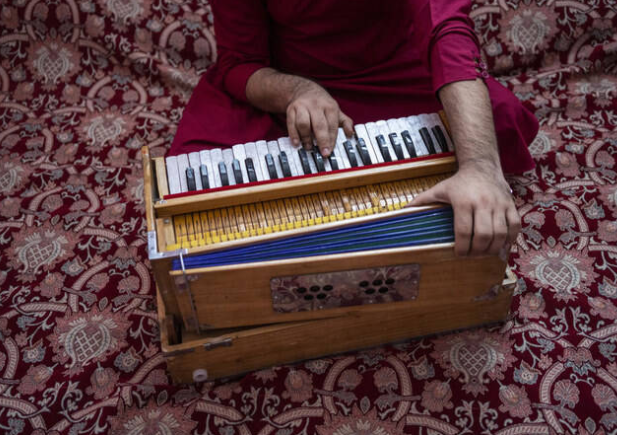

In a move that underscores the Taliban's continued crackdown on cultural practices, authorities in northern Afghanistan have arrested fourteen individuals for playing musical instruments and singing. The incident took place in the capital of the northern Takhar province on Thursday night, where the detainees had gathered in a residential home to engage in musical activities.
The Takhar provincial police confirmed the arrests in a statement released on Saturday, May 10. According to the police, the group took advantage of the night to organize the gathering, during which they played instruments and sang songs, allegedly causing a public disturbance. Authorities are currently investigating the individuals involved.
Since reclaiming power in Afghanistan in 2021, the Taliban government has imposed a series of strict regulations consistent with their conservative interpretation of Islamic law. Among the most significant of these measures is an extensive ban on most forms of music, including live performances, recorded music at social events, in public venues, and even in vehicles and broadcast media.
Following their return to power, Taliban officials shut down music schools, destroyed musical instruments, and banned the playing of music at wedding halls. Although some women discreetly continue to practice music in segregated sections of wedding ceremonies, public musical expression remains largely prohibited.
The Taliban has justified these measures by claiming that music contributes to moral corruption and disrupts social order. The prohibition echoes the policies of the group's previous rule from 1996 to 2001, during which music was similarly banned. In the current climate, the few musical expressions deemed acceptable are limited to Islamic poetry and unaccompanied vocal chants, which align with their religious stance.
The Taliban's crackdown on music has forced many Afghan musicians to flee the country, seeking refuge in regions where they can continue their craft without fear of persecution. Those who remain face the challenge of adapting to an environment where their art form is not only discouraged but actively targeted by the authorities.
This latest incident highlights the ongoing struggle for cultural freedom in Afghanistan, where traditional and artistic expressions continue to clash with the Taliban's rigid ideological stance. As international observers continue to scrutinize the Taliban's human rights record, the plight of Afghan artists remains a point of concern.
Human rights organizations have condemned the Taliban's stance on cultural expression, emphasizing that music and the arts are vital components of a society's identity and heritage. However, the Taliban remains steadfast in its enforcement of what it perceives as moral standards, leaving Afghan artists caught between preserving their heritage and protecting their safety.
The fate of the fourteen arrested individuals remains uncertain as investigations continue. The incident serves as a stark reminder of the broader cultural repression that has gripped Afghanistan since the Taliban's return to power. The international community continues to call for respect for fundamental freedoms, including the right to cultural and artistic expression, but the Taliban's adherence to its own stringent interpretations of Islamic principles remains unchanged.


